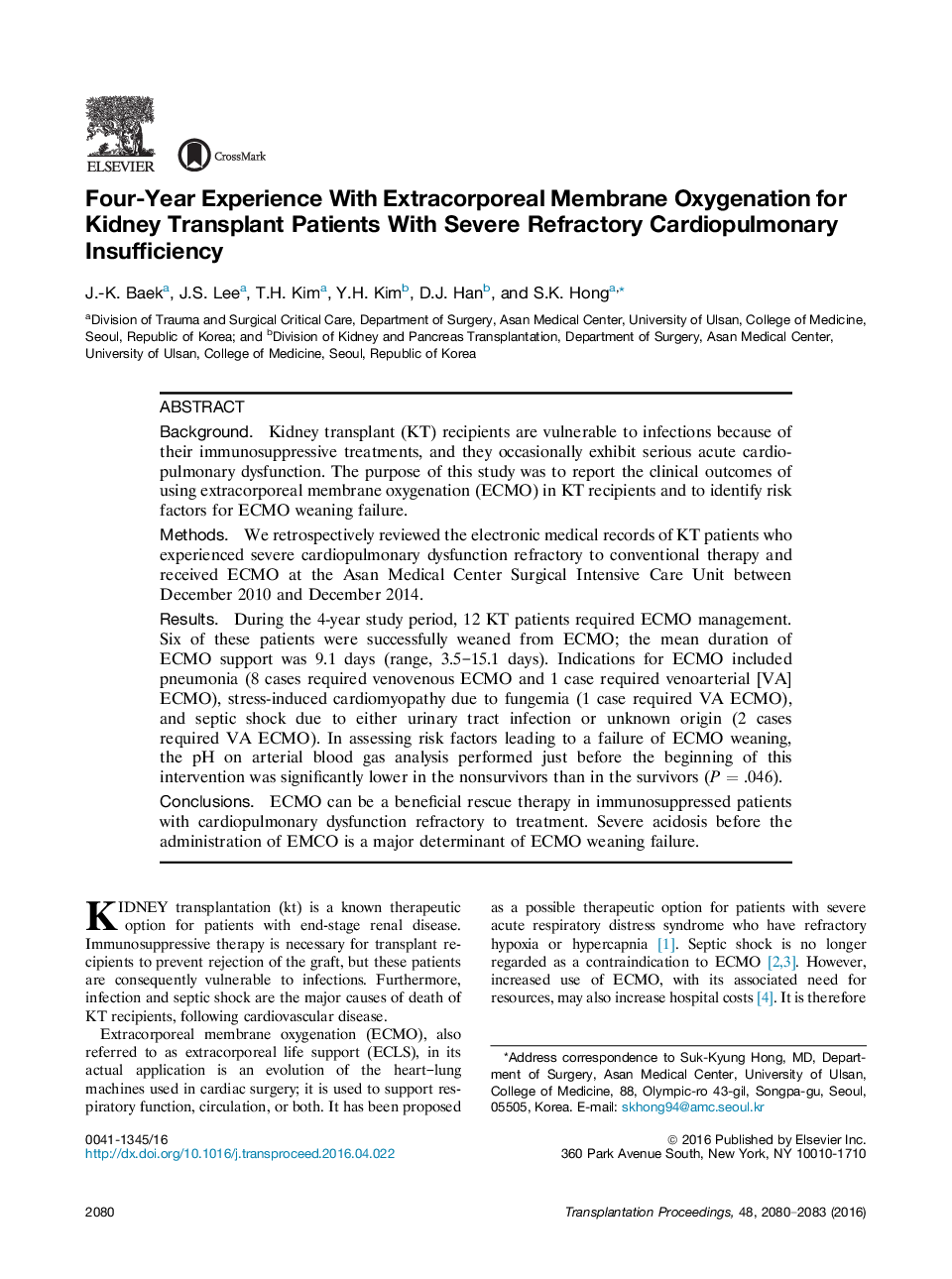| Article ID | Journal | Published Year | Pages | File Type |
|---|---|---|---|---|
| 5729148 | Transplantation Proceedings | 2016 | 4 Pages |
â¢Because of their immunosuppressive treatments, kidney transplant recipients are vulnerable to infections, and these patients occasionally experience serious acute cardiopulmonary dysfunction.â¢Extracorporeal membrane oxygenation (ECMO) can be a beneficial rescue therapy in immunosuppressed patients with cardiopulmonary dysfunction refractory to conventional treatment.â¢Severe acidosis before the administration of EMCO is identified as a risk factor for ECMO weaning failure.
BackgroundKidney transplant (KT) recipients are vulnerable to infections because of their immunosuppressive treatments, and they occasionally exhibit serious acute cardiopulmonary dysfunction. The purpose of this study was to report the clinical outcomes of using extracorporeal membrane oxygenation (ECMO) in KT recipients and to identify risk factors for ECMO weaning failure.MethodsWe retrospectively reviewed the electronic medical records of KT patients who experienced severe cardiopulmonary dysfunction refractory to conventional therapy and received ECMO at the Asan Medical Center Surgical Intensive Care Unit between December 2010 and December 2014.ResultsDuring the 4-year study period, 12 KT patients required ECMO management. Six of these patients were successfully weaned from ECMO; the mean duration of ECMO support was 9.1 days (range, 3.5-15.1 days). Indications for ECMO included pneumonia (8 cases required venovenous ECMO and 1 case required venoarterial [VA] ECMO), stress-induced cardiomyopathy due to fungemia (1 case required VA ECMO), and septic shock due to either urinary tract infection or unknown origin (2 cases required VA ECMO). In assessing risk factors leading to a failure of ECMO weaning, the pH on arterial blood gas analysis performed just before the beginning of this intervention was significantly lower in the nonsurvivors than in the survivors (P = .046).ConclusionsECMO can be a beneficial rescue therapy in immunosuppressed patients with cardiopulmonary dysfunction refractory to treatment. Severe acidosis before the administration of EMCO is a major determinant of ECMO weaning failure.
